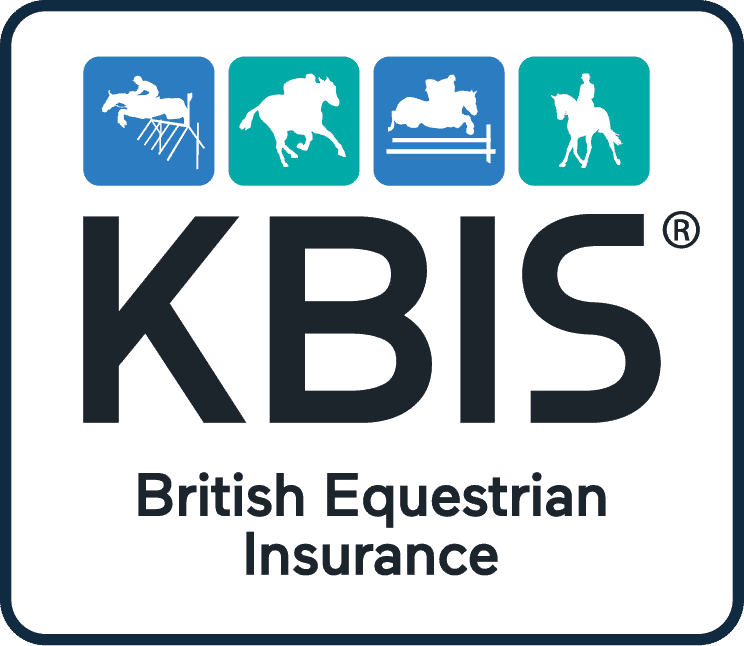Whether you are looking to loan out a horse you own or take on a horse on loan yourself, there are many considerations, horse insurance is just one of these.
For owners thinking of loaning out their horse, it can seem a viable solution if the financial or time commitments of caring for the horse themselves get too much or if the horse needs to step up or down a level perhaps.
For those looking to take on a horse on loan themselves, it’s no secret that buying a horse is expensive so many look to loaning a horse instead as it removes the initial outlay involved with purchasing your own horse. It is important to remember though, that if you get a horse on full loan and take on full responsibility for the horse, the monthly cost of loaning a horse isn’t too dissimilar to owning your own.
What are you responsible for when loaning a horse?
There are a huge number of responsibilities when to comes to caring for a horse. When deciding to loan out your horse or to take on a horse on loan, it is important both parties have agreed on the terms of the loan and who is responsible for what throughout the duration. This includes things like how long the loan period is, who pays for the horse’s livery, feed, farrier, worming and so on, what activities the horse can be used for and, key for this article, who is responsible for insuring the horse whilst he is on loan.
Whose responsibility is the insurance when loaning a horse?
This is to be decided by the owner and the loanee. Often, if a horse is already insured by the owner and has cover in place, it is better to keep the existing policy running so that there is no break in cover for the horse. Then, if the loanee is to be responsible for insuring the loan horse, they can arrange to pay the owner the premium either on a monthly or annual basis, depending on how the policy is paid for. It is possible for the loanee to be named on the policy, so that they are able to discuss it with the insurers and/or make changes to the cover should the owner wish for them to have permission to do so.
Alternatively, it is possible for the loanee to take out their own policy as we discuss below…
Can I insure a horse I don’t own?
Yes, by taking a horse on loan you therefore have an insurable interest and cover can be taken out by the loanee to reflect this.
It is worth bearing in mind that a 45 day limitation period is applied to the start of new policies with KBIS for loan horses, in order to prevent any pre-existing conditions being claimed for. A new policy cannot be started whilst cover is already in place for that horse, hence we suggest that if the owner already has a policy in place that this one continues.
Do I need a loan agreement?
Whether you are loaning out your own horse, or agreeing to take on a horse on loan, having a loan agreement in place is essential. This will outline all of the terms of the loan and confirm that you both agree to stick to them. The loan agreement should also detail how either party should go about terminating the agreement and what authorisation the loanee has in the event that a vet advises the horse sadly has to be put to sleep following an accident. Cover all basis in your loan agreement so that there are no surprises for either party during the loan period. If you are not sure where to start with drawing up a loan agreement, the BHS provide a useful template for this.
What do I need to provide to insure a horse on loan?
A copy of the loan agreement will be requested by your insurer. This is so they have the details of both involved parties and can settle payments for claims to the right person. Vet fee claims are often paid to the loanee (if not the vets directly), assuming it is the loanee who has paid the vets for the treatment. If the horse sadly dies or has to be put down, mortality claims are paid to the owner of the horse as it would be the owner who is at a financial loss as a result of this.
In addition to the loan agreement, a copy of the horse’s veterinary history is also required by the insurers for the time the horse has been in the owner’s care. This is to provide further information as to the horse’s health and to enable insurers to exclude any conditions that pre-exist the policy and therefore will not be covered.
Any other additional documents that are needed, such as a vetting or x-rays, will depend on the value of the horse and the cover you are looking for. More on this in our ‘Do I need a vetting to insure my horse?’ insurance insight.
Do you need insurance to put a horse out on loan?
Whilst there is no legal requirement to have insurance to be able to put a horse out on loan, as the horse’s legal owner it would be sensible to consider having Public Liability cover as a minimum. This covers damages to a third party or property that is caused by the horse. Under the Animals Act, you have strict liability for the actions of your horse regardless of whether or not you are present at the time an incident occurs or responsible for the incident so it is important to protect yourself by having suitable liability insurance in place.
Whether or not you choose to take out additional cover for things like mortality or vet fees is down to personal choice. Discuss with the loanee whether you’d like these to be insured, and who is to pay for the insurance if so, and make sure the decision you come to is in your loan agreement for clarity.
Do you need insurance to loan a horse?
There is no requirement to have any insurance to take a horse on loan. It is certainly worth making sure insurance is discussed with the owner, so you are clear on whether they expect the horse to be insured, and making sure this is included in the loan agreement to refer back to if needed.
If it is decided that any vet bills will fall to you as the loanee and therefore you decide to insure the loan horse, we have up to 10 different vet fee options to choose from ranging from our Catastrophe Cover to full accident, sickness and disease vet fees. You can get a quote online or call us on 0345 230 2323 to speak to a helpful member of our horse team.
Can I take out a short-term insurance policy for a horse on loan?
Rather than offering a short-term insurance policy for loan horses, you would need to take out an annual policy with KBIS. As with all insurances, the first 14 days of a policy are known as a “cooling off period” which means you can cancel and receive a full refund. This is helpful if a horse goes on loan and it doesn’t quite work out as planned. After the first 14 days, subject to no claims, the policy can be cancelled at any point during the policy and a pro-rata refund issued. There is no cancellation fee, it’s just worth bearing in mind that the full premium is due in the event that you make a claim on the policy.
Looking for more insurance insights? Take a look at our article on how to work out how much to insure your horse for.


